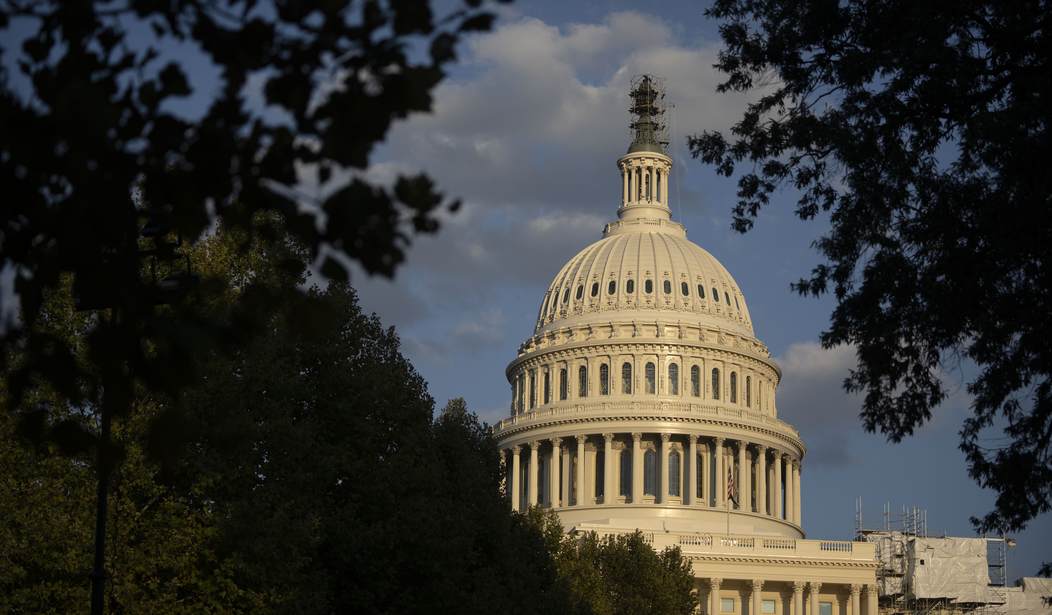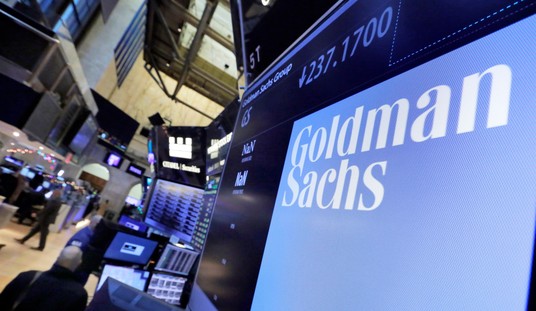Americans have lost trust in the government and many of its institutions, and this is a good thing. It might seem counterintuitive at first glance. But the less people trust the government, the better it is for liberty.
Author Joel Day wrote an op-ed for The Hill in which he discussed the growing sense among Americans that the government does not care about them. This trend has grown among Republicans and Democrats alike, with most feeling as if they cannot trust the state to do what they want.
Day points out that the data shows that “likability and trust for people of other parties is at an all-time low” and that “People feel that the government doesn’t care about ‘people like me’ and feel powerless to change it.”
Consider that, back in 2016, a University of Maryland survey found that 65 percent of both Republicans and Democrats said, “The system is rigged against people like me,” echoing the populist rhetoric of both Donald Trump and Sen. Bernie Sanders (I-Vt.).
This anti-system sentiment held in 2022, when a University of Chicago poll found that most Americans in both political parties agreed with that statement. Not [sic] do people view the system as rigged against them, but they also think it is immune from democratic means to change course.
This spring, the Rooney Center for the Study of American Democracy asked a nationally representative sample in the Notre Dame Health of Democracy Survey whether they believed “people like me have no influence on what the government does.”
Results showed that 56 percent of Democrats and 74 percent of Republicans agreed or strongly agreed.
A new CNN poll similarly found that 78 percent of Democrats, 83 percent of Independents and 86 percent of Republicans feel that the American political system needs a “complete overhaul” and “major reforms.” Across the political spectrum, the crisis in American democracy is not just that the electorate is polarized, but that the government is seen as uncaring and unresponsive.
This growing enmity toward the government has been channeled by politicians using populist messaging to appeal to disaffected voters. Indeed, the use of populism as a rhetorical tool has grown over the past decade on both sides, as people increasingly believe those running the government are not concerned about their problems. Day uses inflation as an example:
Hot-button issues may be more about this feeling of relative status deprivation than policy preferences. Take inflation, for instance. Inflation is so politically salient because it touches on this fundamental feeling: Does anybody care that I can’t afford food anymore? Inflation is a viable outlet for populist grievance because it furthers the narrative that government and corporate elites neither care nor can make our lives better. By introducing policies like price controls, the Harris campaign is communicating the government can do something to help people like you.
Populists build their politics around the resentment of relative deprivation, especially in democracies where the allocation of surplus and loss hinges on a zero-sum mentality. The biggest challenge for a democracy is to provide for the general welfare without resorting to populist appeals that turn people against one another. Perhaps the first step toward restoring faith in democracy is to directly address a bipartisan majority that is skeptical the government is capable of improving their lives. Kitchen table economic issues, where there is actual consensus, is a foundation to build on.
Earlier in this piece, Day says that this growing sentiment “may be the key to rebuilding our democracy after a divisive election season,” and suggests that bipartisan solutions coming from Congress and the White House on issues like immigration, the economy, and other issues could help to restore trust in American “democracy” while healing political division.
However, when I see this data, I come to a different conclusion, one that makes me optimistic for the future. Let’s face it, we will likely never see a day when Americans trust the government as they have in days long past. The advent of digital media has seen to that. It is far easier to discover instances of government malfeasance at the local, state, and federal levels.
Moreover, politicians are more concerned with partisan bickering and using division to garner more support than they are with pursuing real solutions. This won’t change anytime soon – if ever.
As bad as it sounds, we could be in the dark period that comes before an eventual reawakening in American society. The more that people see how little their supposed leaders care about them, the more likely it will be that they will rely more on themselves and their communities to address their problems.
Instead of simply looking toward government officials and faceless bureaucrats, perhaps we will eventually see a time when Americans begin to realize that those who vote differently from them aren’t necessarily their enemies, and that the elites running our government are the ones screwing everyone over to enrich themselves. At this point, maybe we won’t look to a particular politician or political party to become our savior.
We will do it ourselves.
Some of this is already happening. A few weeks ago I wrote about the growth of the prepper movement, in which Americans are increasingly learning how to become self-sufficient in the event of a natural or man-made disaster. My colleague Ward Clark wrote about how even folks on the left are becoming preppers. This trend is one of several showing a declining trust in the government’s ability, or willingness, to help its citizens.
I often cite rising gun ownership rates as evidence that people are realizing the state cannot always save them. People are realizing that they are the ones ultimately responsible for their well-being, not the state.
When more of us finally realize that the government isn’t our savior, we will be more inclined to look to solutions outside of bureaucratic institutions. It might bring about a culture of individual responsibility in which we turn to private enterprise and community-based initiatives. Americans could gravitate more towards looking at their local politics rather than hyper-focusing on Washington, D.C.
I have no idea when this renaissance might finally happen. Perhaps I’m wrong and Americans might end up trusting the state again. But at some point, there will be an awakening where people finally understand that it is not their fellow Americans who are the enemy, but those who profit from keeping us divided.














